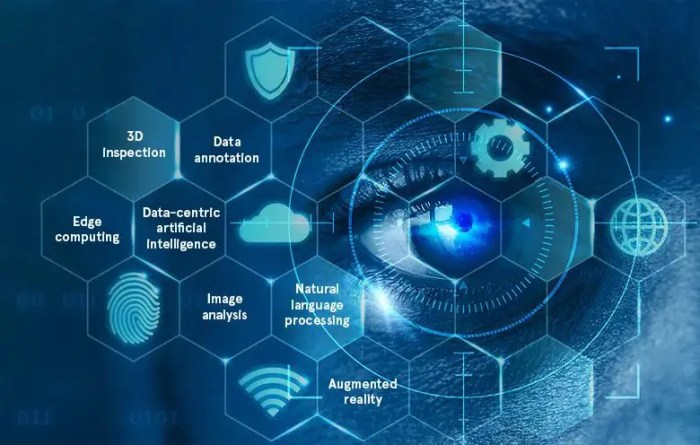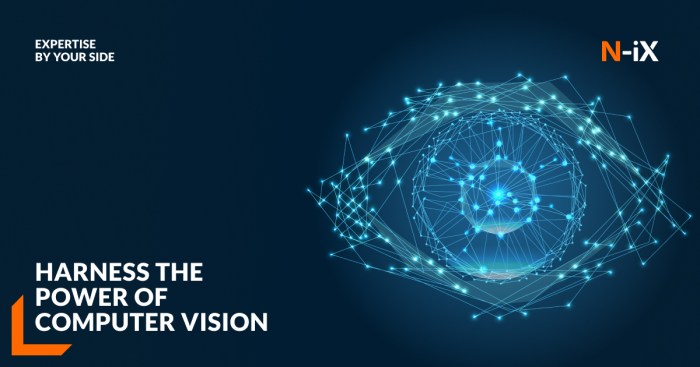The field of computer vision is rapidly evolving, driving innovation across numerous industries. This growth has fueled the rise of specialized computer vision software development companies, offering bespoke solutions and advanced capabilities to businesses worldwide. This comprehensive guide delves into the world of these companies, exploring their roles, services, technologies, and the future of the industry.
What are Computer Vision Software Development Companies?
Computer vision software development companies are specialized firms that design, develop, and implement software solutions leveraging computer vision technologies. These companies employ skilled engineers, data scientists, and machine learning experts to create applications that enable computers to “see” and interpret images and videos. Their services range from basic image processing to complex deep learning models for object detection, image recognition, and video analysis.

Core Services Offered
- Image Recognition and Classification: Developing systems that automatically identify and categorize objects, scenes, and faces within images.
- Object Detection and Tracking: Creating software that locates and follows objects in real-time video streams, crucial for applications like autonomous vehicles and surveillance.
- Image Segmentation: Precisely delineating objects and regions of interest within an image, useful in medical imaging and autonomous driving.
- 3D Reconstruction: Generating 3D models from 2D images or video sequences, vital for architectural modeling, virtual reality, and augmented reality applications.
- Optical Character Recognition (OCR): Extracting text from images and documents, automating data entry and improving document management.
- Facial Recognition: Identifying and verifying individuals based on their facial features, used in security systems and biometric authentication.
- Custom Algorithm Development: Designing tailored computer vision algorithms to meet specific client needs and address unique challenges.
- Data Annotation and Labeling: Providing high-quality annotated datasets essential for training robust computer vision models.
- Integration with Existing Systems: Seamlessly incorporating computer vision solutions into pre-existing workflows and applications.
Technologies Employed by Computer Vision Companies
Computer vision software development relies heavily on advanced technologies. Understanding these technologies is crucial for selecting the right company for your needs.
Computer vision software development companies often face challenges scaling their teams efficiently. A smart solution is to explore cost-effective options like nearshore software development for startups , which allows access to skilled developers while maintaining close collaboration. This approach can significantly benefit computer vision companies by accelerating development cycles and reducing overall project costs.

Key Technologies:
- Deep Learning Frameworks: TensorFlow, PyTorch, Caffe, and others are used to build and train complex neural networks for computer vision tasks.
- Convolutional Neural Networks (CNNs): A specialized type of neural network exceptionally effective for image processing and recognition.
- Recurrent Neural Networks (RNNs): Used for processing sequential data like video, enabling tasks like action recognition and video summarization.
- Computer Vision Libraries: OpenCV, scikit-image, and others provide pre-built functions and tools for common computer vision tasks.
- Cloud Computing Platforms: AWS, Google Cloud, and Azure offer scalable computing resources for training and deploying large computer vision models.
- GPU Acceleration: Utilizing Graphics Processing Units (GPUs) to significantly speed up the computationally intensive tasks involved in training and deploying computer vision models.
Choosing the Right Computer Vision Software Development Company
Selecting the appropriate company requires careful consideration of several factors:
Factors to Consider:
- Experience and Expertise: Look for companies with a proven track record in your specific industry or application area.
- Technical Skills and Technologies: Ensure the company possesses expertise in the relevant technologies and frameworks for your project.
- Project Portfolio: Review their past projects to assess their capabilities and the quality of their work.
- Communication and Collaboration: Effective communication is essential for a successful project. Choose a company that fosters open and transparent communication.
- Scalability and Maintainability: Consider the long-term scalability and maintainability of the solution they propose.
- Pricing and Contract Terms: Understand the pricing structure and contract terms before engaging a company.
- Data Security and Privacy: Ensure the company adheres to strict data security and privacy protocols, especially when dealing with sensitive data.
The Future of Computer Vision Software Development
The future of computer vision is bright, with ongoing advancements in deep learning, increased computing power, and the availability of larger datasets driving innovation. We can expect to see:
Future Trends:
- Increased Accuracy and Efficiency: Continued improvements in algorithms and hardware will lead to more accurate and efficient computer vision systems.
- Wider Adoption Across Industries: Computer vision will become increasingly integrated into various sectors, from healthcare and manufacturing to retail and transportation.
- Edge Computing: Processing computer vision tasks directly on devices rather than relying on cloud infrastructure will become more prevalent.
- Explainable AI (XAI): Developing more transparent and understandable computer vision models will be crucial for building trust and addressing ethical concerns.
- Real-time Applications: Real-time computer vision applications will become more sophisticated and responsive, enabling new possibilities in areas like autonomous driving and robotics.
Frequently Asked Questions (FAQ)
- Q: What is the cost of developing a computer vision application? A: The cost varies greatly depending on the complexity of the application, the required features, and the development company’s rates. It’s best to get customized quotes from several companies.
- Q: How long does it take to develop a computer vision application? A: Development time depends on the project’s scope and complexity. Simple projects might take a few weeks, while complex projects could take several months or even years.
- Q: What type of data is needed for training a computer vision model? A: High-quality, labeled data is essential. The type and amount of data depend on the specific task. For example, object detection requires images with bounding boxes around the objects of interest.
- Q: What are the ethical considerations of computer vision? A: Ethical concerns include bias in algorithms, privacy violations, and the potential for misuse in surveillance and other applications. Responsible development and deployment are crucial.
- Q: What is the difference between computer vision and image processing? A: Image processing focuses on manipulating images, while computer vision aims to interpret and understand the content of images and videos.
References
Call to Action
Ready to leverage the power of computer vision for your business? Contact us today to discuss your project and explore how we can help you achieve your goals.
